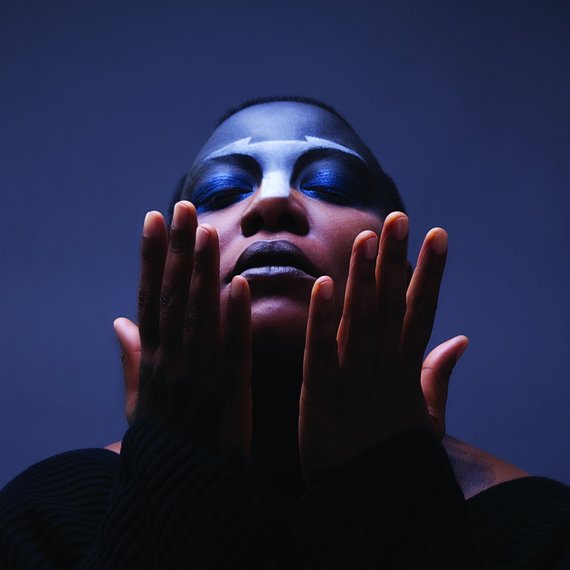
There's an exquisite, life-affirming quote by Audre Lorde in which she says, "I have come to believe over and over again that what is most important to me must be spoken, made verbal and shared, even at the risk of having it bruised or misunderstood."
For Lorde, reticence was the ultimate killer - not only of creative expression but of the psyche and the spirit. In that sense, she equated freedom with the capacity to voice your truth, consequences be damned.
Audre Lorde was part of a lineage of African-American thinkers that criss-crossed from James Baldwin to Toni Morrison, Sojourner Truth to Angela Davis, Billie Holiday to Nina Simone to Gil Scott-Heron and back again. It's fair to say that, in our age of digitized apathy and carefully-curated online inertia, you can add singer-songwriter and bassist Meshell Ndegeocello to that long line of creative polymaths who have not only injected vital energy into the culture but repeatedly spoken truth to power. To accomplish all of this whilst creating some of the sexiest, most blissed-out music you'll hear is an astonishing feat.
Every Ndegeocello fan remembers the first time they heard one of her songs. For some it was the palpable ache of 'Fool of Me' from the critical smash Bitter. For others, it was the bombastic thrill of 'If That's Your Boyfriend (He Wasn't Last Night)'. I came to Ndegeocello late and discovered her through her fifth album, Comfort Woman. That disc, with its sex-funky, space-age soul hymns, was an ode to pure, unfiltered passion that spoke to me because I was giddy with love. I still listen to that LP on loop because it reminds me not only of the generosity of spirit that it takes to nurture love but also how love ultimately transforms us into better, more fully-realized human beings.
Comfort Woman, with its woozy, dubby rhythm and electro-kinetic energy, managed to combine the smouldering quality of Portishead with the funk of Fela Kuti, and presaged the rise of the electro-soul stylings of Janelle Monae, Solange, Miguel, Kelela, The Weeknd, Frank Ocean and Drake by nearly a decade. Now, more than ten years after the release of Comfort Woman, Ndegeocello returns to that musical territory and expands on it with renewed passion, vigor and vulnerability.
Her new album, Comet, Come to Me (Naïve Records) is one of the best, most seductive and sonically layered LPs you'll hear this year. From the funk-driven ferocity of the Whodini cover, 'Friends' to the Nashville-tinged soulfulness of 'Tom' and 'Good Day Bad' to the reggae riddims of the title track, these songs are powered by ambiguity, melancholy and confidence. One gets the sense of an artist pushing against her own parameters by delving inward to reveal something of herself. This takes courage, which is why Comet is such a thrilling record. This is not the sound of an artist twenty years into her career but of someone in a state of sustained self-discovery and renewal. It's the sound of an artist who's unafraid to take risks or reveal her scars.
Comet, Come to Me is the sound of a gifted musician in constant forward motion and, crucially, one who is not afraid to take her listeners along for the ride. It's the sound of the future.
Meshell Ndegeocello's Comet, Come to Me (Naïve Records) is out now. You can connect with her on Twitter, Facebook and Instagram.
Diriye Osman is a British-Somali short story writer, visual artist, essayist and critic. His acclaimed collection of short stories, Fairytales For Lost Children (Team Angelica Press) can be purchased here. He is currently at work on a long-term series of paintings about the link between cultural identity, fairytales and sexuality. You can visit his website www.diriyeosman.com to explore his short stories, photography, visual art, videos, audio recordings and essays.